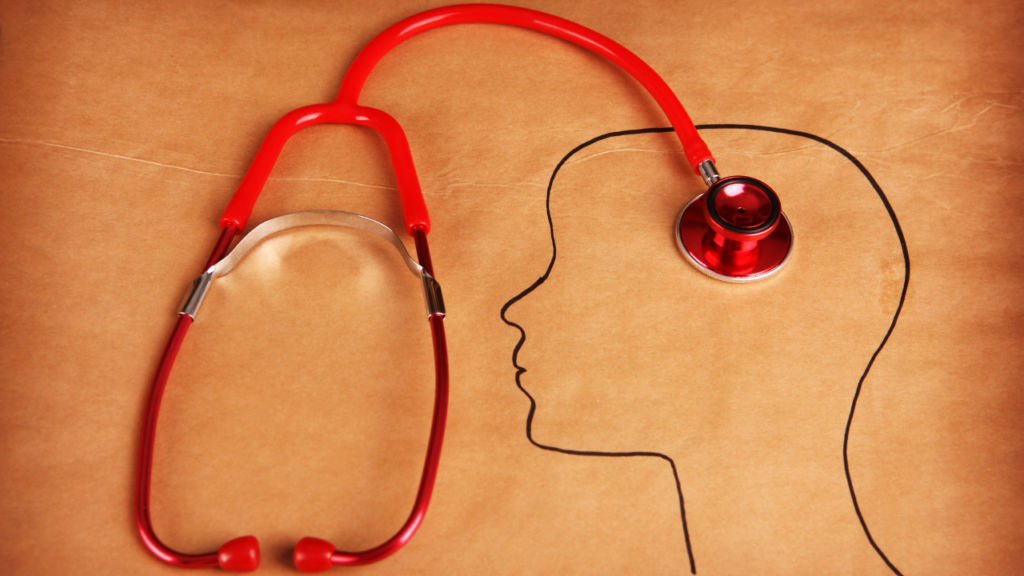The Gut-Brain Axis (GBA) has gained a lot more popularity recently, as it rightly should. But the concept has been around for a long time.
Early 20th century scientists knew of the importance of microbes on the functional integrity of the GI tract and it’s influence in depression and mental health disorders.
The ancient Chinese focused on gut health for mental health symptoms for thousands of years. We now know that our bacteria in our GI tract communicates with our central nervous system, and vice versa.
The Gut-Brain Axis can be defined as a two-way communication between our nervous system.
This communication is done through linking emotional and cognitive centers of the brain with intestinal functions via signals from our nerves, hormones, immune and maybe even other systems we don’t know about.
A dysbiosis is an imbalance in a person’s natural microflora (Bacteria and other organisms that live inside the intestines). This microflora is very important for our general health.
They (it, or whatever you want to term all these trillions of lovely organisms) help digest food, produce vitamins, protect us from bad bacteria, and so much more. While it is very commonplace to think these organisms contribute to our digestive and gut health, most don’t associate them with our mental health.

What about mental health?
Mental health treatments tend to be focused on treating the brain, or a product of the nervous system.
For instance, if you have anxiety or are feeling depressed there are selective serotonin uptake inhibitors (SSRIs) which attempt to keep more serotonin in the nervous system.
The thought being more serotonin will bring about that positive mood feeling. The challenge was: the original research that led us to make SSRIs showed people with depression had too little serotonin and some had too much. And while these medications certainly work for some, for many others there could be a totally different area of the body that needs to be focused on.
So, can you guess what they are? You got it! Your GUT!
Mental Health Symptoms in GI Conditions
If our mental health depends so much on our gut health, there must be specific GI diagnoses that also have mental health symptoms… right? Well, that’s exactly what we’re going to explore.
Common GI conditions such as IBS (irritable bowel syndrome) often goes misdiagnosed. The underlying cause is often a condition called SIBO (small intestinal bacterial overgrowth).
This is where there’s bacterial growth in the small intestine instead of the large instead, where are gut flora should be. GI symptoms could be caused by overgrowth of specific bacteria, fungus, parasites, worms or viruses anywhere in the gut.
Different tests help determine where the problem is, in the small intestine, large intestine, or both!
Having a dysbiosis can certainly have obvious GI symptoms such as bloating, constipation, diarrhea, cramping, loss of appetite, and fatigue (from not absorbing nutrients). But many don’t consider mental or emotional symptoms that could happen from the imbalance.
Approximately 30% of those with major depressive disorder (MDD) have diagnosable irritable bowel syndrome (IBS). Another interesting find is higher amounts of aerobic enterococcal counts in patients with chronic fatigue syndrome or fibromyalgia the more severe they experience neurological issues; such as nervousness, memory loss, forgetfulness, and confusion.
Enterococcal bacteria are a gram-positive genus of lactate-producing bacteria in the Firmicutes phylum. High levels may be due to reduced digestive capacity, constipation or small intestinal bacterial overgrowth.
If that sounds confusing, it’s because it is! There’s dozens and dozens more to worry about and it’s why you should get tested through a doctor that is experienced in this field.
So, why does this happen?
There are multiple reasons why dysbiosis can lead to mental health issues. One is that chronic inflammation in the gut leads to inflammatory cytokines (chemical messengers) influencing complex brain functions.
There’s even research showing there doesn’t have to be high levels of these cytokines flowing through our body for them to influence our brain.
I mentioned there are multiple ways our gut bacteria can influence mental health issues. Take a look at some of the proposed pathways from a team that looked at how supplementing probiotics help those with fatigue and depression:
• Direct protection of the intestinal barrier
• Influence on local and systemic antioxidant status, reduction in lipid peroxidation
• Direct, microbial-produced neurochemical production – e.g. GABA
• Indirect influence on neurotransmitter/neuropeptide production
• Prevention of stress-induced alterations to overall intestinal microbiota
• Direct activation of neural pathways between gut and brain
• Limitation of inflammatory cytokine production
• Modulation of neurotrophic chemicals including brain-derived neurotrophic factor
• Limitation of carbohydrate malabsorption
• Improvement of nutritional status – e.g. omega-3 fatty acids, minerals, phytochemicals
• Limitation of small intestinal bacterial overgrowth
• Reduction of amine/uremic toxin burden
• Limitation of gastric/intestinal pathogens (e.g. Helicobacter pylori)
• Analgesic properties
If all of these are ways that adding good bacteria can help, think of all the ways things are going wrong when dysbiosis occurs for a long period.
Intestinal permeability is another major factor in dysbiosis. New studies report that patients with major depression (vs. healthy controls) have higher serum IgM and IgA against a variety of commensal gut bacteria.
SIBO is strongly associated with depression and anxiety, as well as IBS, fibromyalgia (FM), insulin resistance, and obesity. SIBO often goes undiagnosed, and to make it trickier some can have none to mild symptoms.
SIBO can interfere with the absorption of nutrients such as proteins, fats, carbohydrates, B vitamins, and other micronutrients due to bacterial interference. Excess bacteria can successfully compete for nutrients, produce toxic metabolites, and cause direct injury to cells in the small intestine.
Of course, interference with nutrient absorption, toxic metabolites, and increased inflammation could have a heavy impact on our mental health. Another interesting association is that between omega-3s, SIBO and depression. An omega-3 deficient diet increases SIBO, and constant research has found inadequate omega-3 levels are associated with depression.
Focusing on gut health to improve mental health symptoms could be life changing. Not only could it improve your mental well-being but it will have other systemic benefits as our gastrointestinal digestive system plays such a key role in our overall health.
So if you’re struggling with mental health and can’t seem find a solution, it might be time to give your gut some love.

References:
Addolorato, G., et al. “State and Trait Anxiety and Depression in Patients Affected by Gastrointestinal Diseases: Psychometric Evaluation of 1641 Patients Referred to an Internal Medicine Outpatient Setting.” International Journal of Clinical Practice, vol. 62, no. 7, 2008, pp. 1063–1069., doi:10.1111/j.1742-1241.2008.01763.x.
AKPINAR, Orhan. “The Gut-Brain Axis: Interactions between Microbiota and Nervous Systems.” Journal of Cellular Neuroscience and Oxidative Stress, vol. 10, no. 3, 2018, pp. 783–783., doi:10.37212/jcnos.610103.
Bested, Alison C, et al. “Intestinal Microbiota, Probiotics and Mental Health: From Metchnikoff to Modern Advances: Part II – Contemporary Contextual Research.” Gut Pathogens, vol. 5, no. 1, 2013, doi:10.1186/1757-4749-5-3.
De Magistris, Laura, et al. “Alterations of the Intestinal Barrier in Patients with Autism Spectrum Disorders and in Their First-Degree Relatives.” Journal of Pediatric Gastroenterology & Nutrition, vol. 51, no. 4, 2010, pp. 418–424., doi:10.1097/mpg.0b013e3181dcc4a5.
Lauritano, Ernesto Cristiano, et al. “Small Intestinal Bacterial Overgrowth and Intestinal Permeability.” Scandinavian Journal of Gastroenterology, vol. 45, no. 9, 2010, pp. 1131–1132., doi:10.3109/00365521.2010.485325.
Logan, Alan C., and Martin Katzman. “Major Depressive Disorder: Probiotics May Be an Adjuvant Therapy.” Medical Hypotheses, vol. 64, no. 3, 2005, pp. 533–538., doi:10.1016/j.mehy.2004.08.019.
POLLMACHER, T, et al. “Low Levels of Circulating Inflammatory Cytokines—Do They Affect Human Brain Functions?” Brain, Behavior, and Immunity, vol. 16, no. 5, 2002, pp. 525–532., doi:10.1016/s0889-1591(02)00004-1.





